Read more about the recommendation on physical activity for children and adolescents aged 7 to 17 years on this page:
- Content of the recommendation
- Video and presentation material on the recommendation
- Materials in English
- Source
At least 60 minutes of moderate to vigorous physical activity a day
All children and adolescents aged 7 to 17 years are recommended to be physically active in a versatile, brisk and strenuous manner for at least 60 minutes a day in a way that suits the individual, considering their age. Excessive and extended sedentary activity should be avoided.
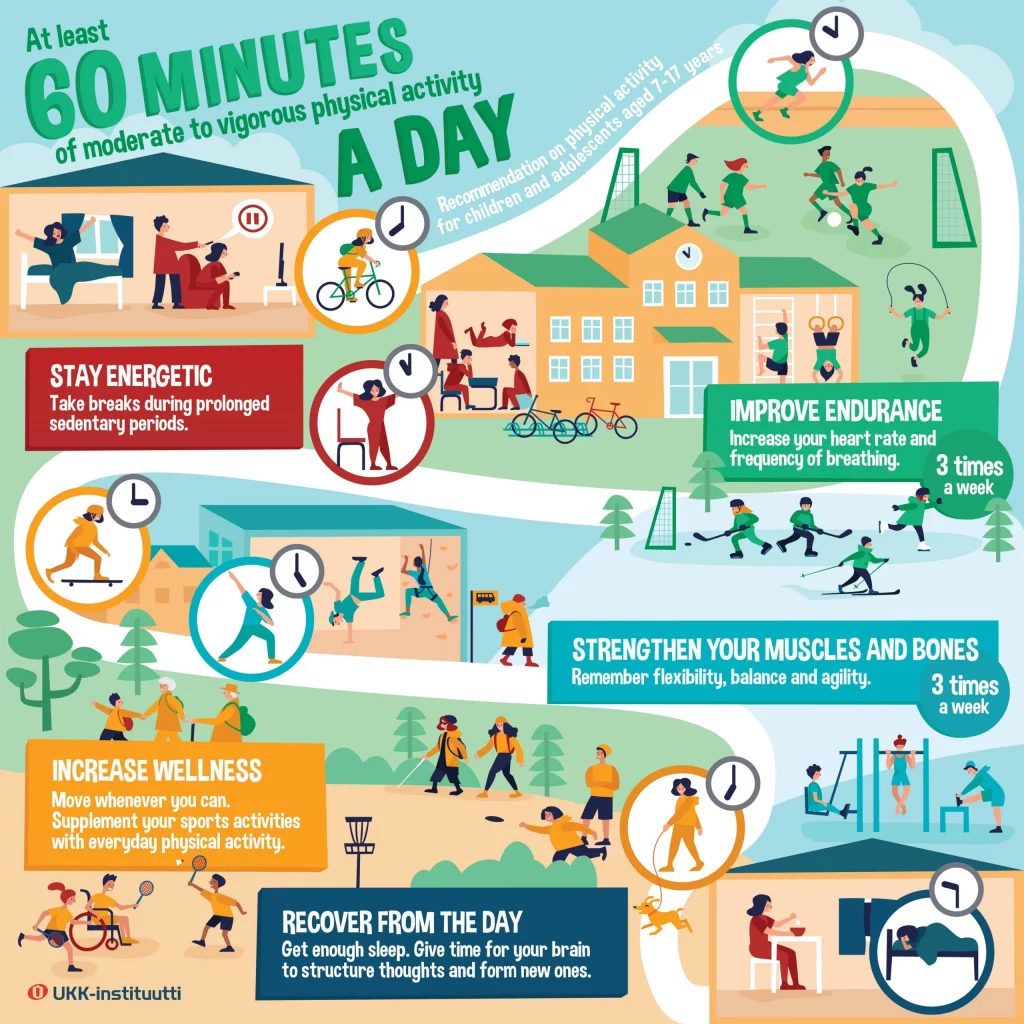
Based on the best scientific evidence, the recommendation on physical activity for children and adolescents describes how much and what kind of physical activity children and adolescents need in order to ensure their wellbeing.
According to the recommendation, it is good to be physically active every day of the week, most of the physical activity being endurance activity. Vigorous endurance-type activity and physical activity that increases the strength of the musclular and skeletal system should be performed at least three days a week. Physical activity should be versatile, in which case different movement skills develop. Attention should also be paid to flexibility.
The recommended amount of physical activity can be accumulated from several sessions of physical activity during the day. A smaller amount of physical activity is also beneficial, even if the recommendation is not met every day.
The joy of physical activity helps to create a lasting physical activity routine and find lasting hobbies. All children and adolescents should engage in daily physical activity that is safe and equally available to everyone.
All children and adolescents should be physically active every day
Physical activity recommendations apply equally to all children and adolescents, regardless of their potential disability, difficulty in motor learning or minority status. It is important to encourage children and adolescents to be physically active, and to provide all children and adolescents with opportunities to participate safely and equally in activities that are appropriate to their age and abilities and that are enjoyable and offer variety.
It would be good to distribute the recommended amount of physical activity evenly between different days of the week and to be physically active on most days of the week, not just 1–2 days a week. Physical activity, in this context, includes all kinds of physical activity, such as play and games, physical activity and sports, physical activity during the school day as part of physical education, breaks or lessons, physical activity during leisure time independently or in connection with hobbies or sports activities or as part of housework, and moving actively from one place to another, for instance by walking, cycling or in a wheelchair.
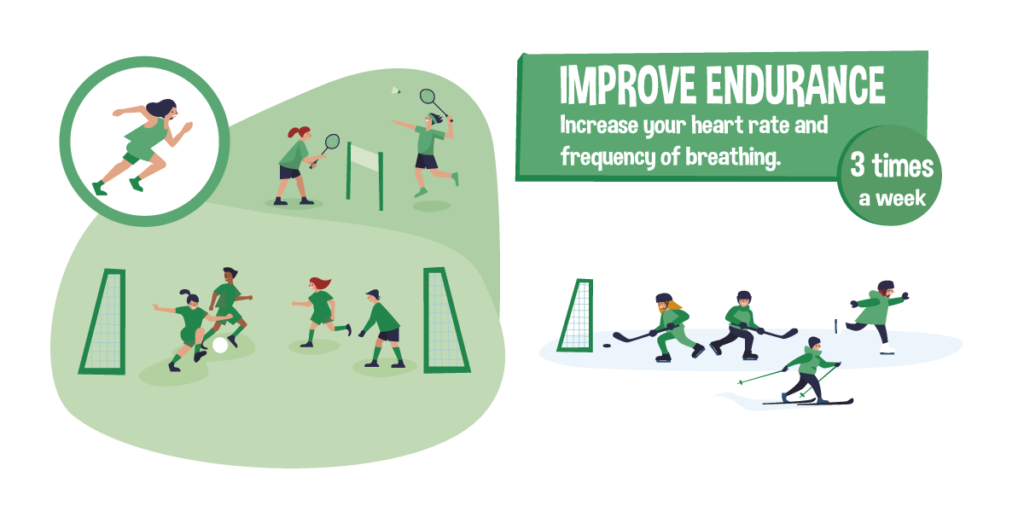
Improve endurance 3 times a week
Increase your heart rate and frequency of breathing.
Would you like e.g. swimming, brisk walks, cycling, running, soccer, basketball, ice skating or cross-country skiing?
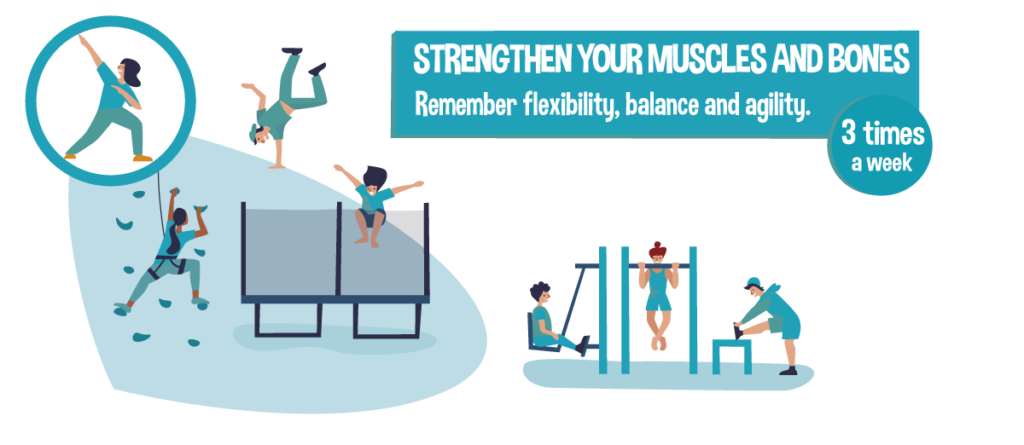
Strengthen your muscles and bones 3 times a week
Remember flexibility, balance and agility.
Would you like e.g. floorball, badminton, volleyball, skateboarding, dance, parkour or climbing?
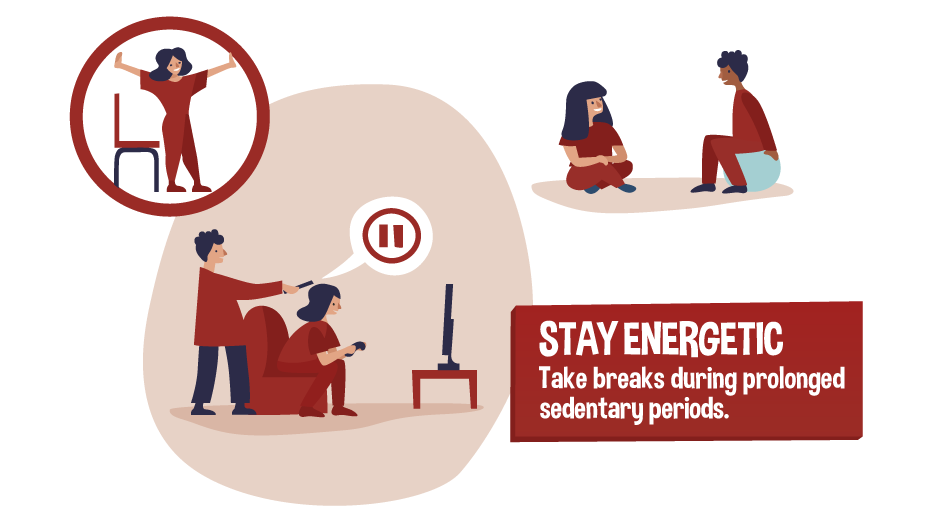
Stay energetic
Take breaks during prolonged sedentary periods
Could you e.g. stretch your legs once an hour, limit your screen time or do break exercises?
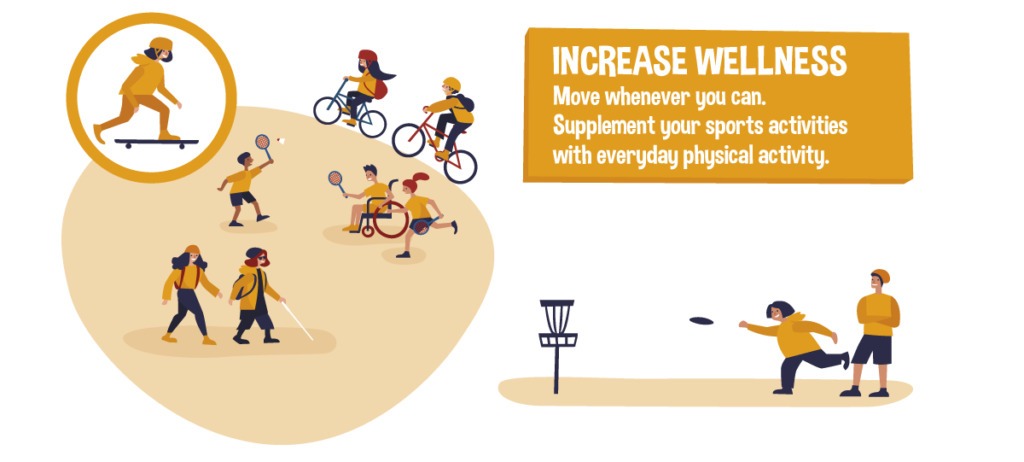
Increase wellness
Move whenever you can
Supplement your sport activities with everyday physical activity.
Could you e.g. walk or cycle to school, take the stairs instead of the elevator or take the dog for a walk?
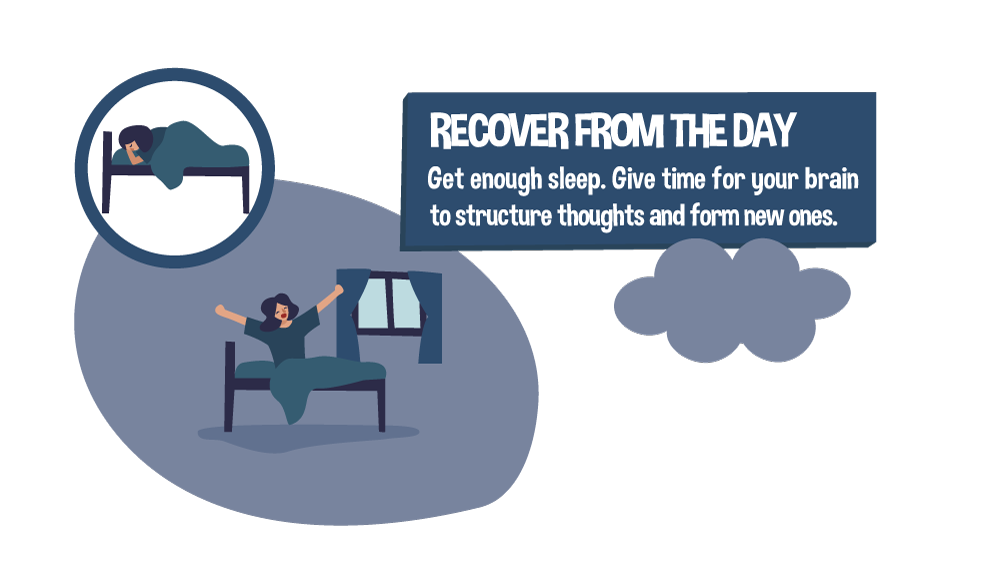
Recover from the day
Get enough sleep
Give time for your brain to structure thoughts and form new ones.
Video and presentation material on the recommendation
The animation video presents the key contents of the physical activity recommendation for children and adolescents aged 7 to 17 years by following how Aida and Pyry get their physical activity during the day.
Physical activity recommendation for children and adolescents aged 7 to 17. (2021) Presentation in SlideShare:
Materials on the recommendation on physical activity for children and adolescents in English
Information materials
- Brochure
- Brochure: Be physically active at any age
- Picture/ poster
Materials for teaching
- Presentation material
- Presentation material for education
- Presentation material: Be physically active at any age
- Video: Physical activity recommendation for children and adolescents – Pyry and Aida’s day
- Example images: Physical activity weeks for children and youth
- Report: Recommendation on physical activity for children and adolescents aged 7 to 17 years. Publications of the Ministry of Education and Culture, Finland 2021:21.
Materials for individual guidance
- Online application: The online physical activity questionnaire for children and adolescents
- Diary for monitoring physical activity and sleep
- Plan for improving physical activity or sleep
Source
The working group for the recommendation on physical activity for children and adolescents appointed by the coordination body for sports policy. Recommendation on physical activity for children and adolescents aged 7 to 17 years. 2021. Report series of the Ministry of Education and Culture, Finland 2021:19.
Last updated: 15.5.2025
